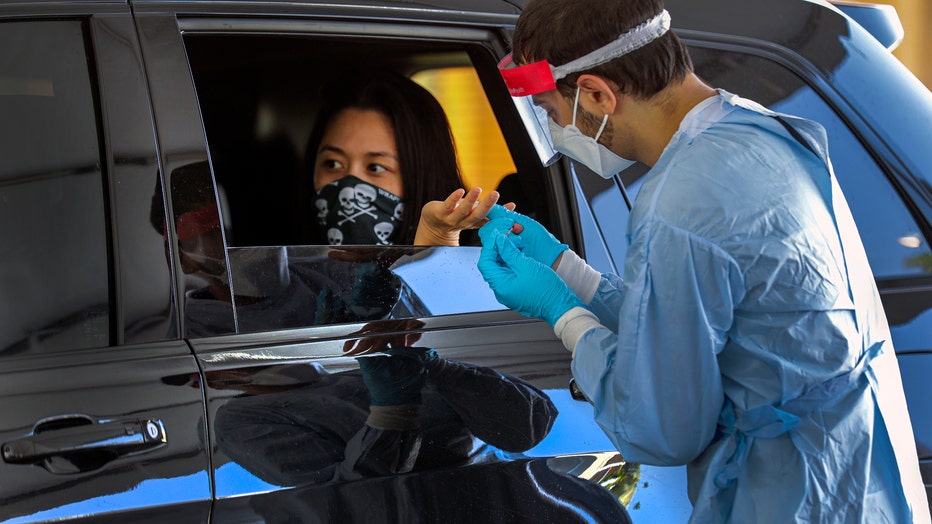CDC says antibody test results should not influence decisions to return to work or school
LOS ANGELES - The U.S. Centers for Disease Control and Prevention (CDC) has updated its guidance on the use and reliability of antibody testing, saying that in a population where prevalence of COVID-19 is low, “less than half of those testing positive will truly have antibodies.”
The new guidance comes as antibody testing has expanded this month with hopes of understanding just how many Americans have been infected by the new coronavirus.
RELATED: CoronavirusNOW.com, FOX launches national hub for COVID-19 news and updates
When testing for the virus, there are two methods, and both are critical in combating the spread of COVID-19, according to Washington University School of Medicine in St. Louis.
Molecular diagnostic tests detect the virus using swabs from an individual’s nose or throat and can identify active infections, even when no symptoms are present.
Antibody testing, or serology tests, became widely available in April and are performed on a blood sample in order to detect antibodies produced to fight the infection. A positive antibody result means that at some point, that person was infected in the past.
RELATED: Asymptomatic individuals may be rapidly spreading COVID-19, according to researchers
But medical experts, including the CDC, are urging caution when it comes to interpreting antibody tests.

A medical worker administers a coronavirus antibody test in a drive through testing center. (Irfan Khan / Los Angeles Times via Getty Images)
RELATED: Epidemiologists urge creation of ‘smart testing’ system in US to minimize climbing COVID-19 deaths
A report published on May 20 by the University of Minnesota’s Center for Infectious Disease Research and Policy (CIDRAP) points out that while antibody tests can provide useful information and evidence of current or previous infection, “antibody tests are generally not intended to be used as a diagnostic tool for confirming acute infection, except in unusual circumstances. Nor is it clear if having antibodies to the virus protects someone from being infected again in the future.”
Christopher Farnsworth, an instructor of pathology and immunology at Washington University School of Medicine, said antibody tests “may give some people a false sense of security.”
“In our research, we estimated that if we screened asymptomatic individuals, only one out of seven positive antibody tests in Missouri would be true positives, even with a highly accurate test. So, the other six people may think they’re protected and let their guard down, and then they could get infected and spread the disease," said Farnsworth.
RELATED: ‘It is affecting every age group’: 3D video shows extensive damage to lungs caused by COVID-19
“Widespread antibody testing could do more harm than good if people do not understand the limitations of such testing,” he added.
As a result of the complications and potential inaccuracy, the CDC advised that antibody test results should not be used to make decisions “about grouping persons residing in or being admitted to congregate settings, such as schools, dormitories, or correctional facilities,” or “returning persons to the workplace.”

